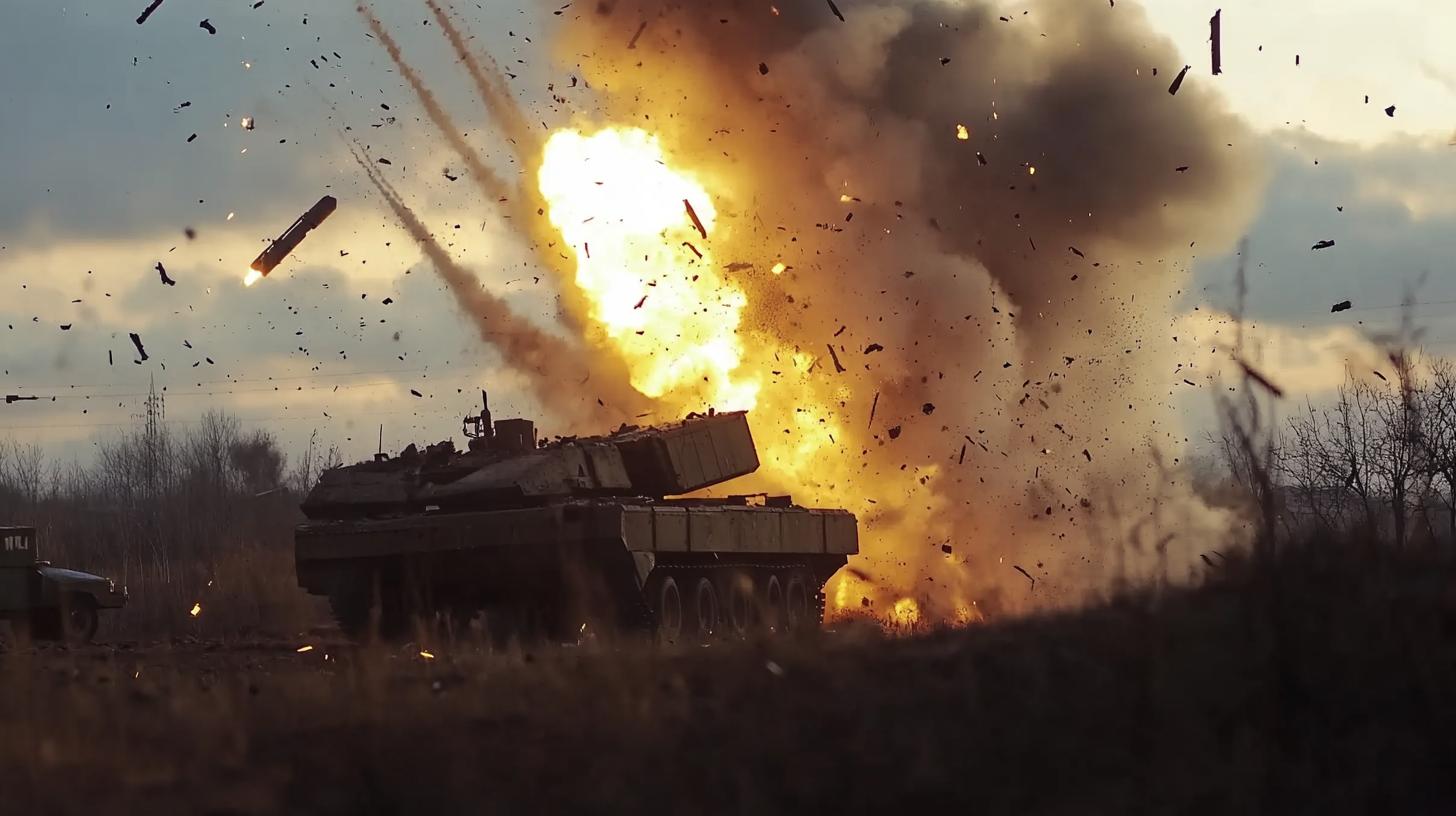In a daring maneuver, Ukrainian forces have dealt a significant blow to Russia by targeting a critical component of their defense infrastructure. The attack reportedly took place early Sunday, with Ukrainian forces claiming they successfully destroyed an advanced Russian S-400 “Triumf” radar station in the Kursk region. This top-tier air defense system, valued at $200 million, was operated by the 1490th anti-aircraft missile regiment and was being used in a ground-to-ground mode for targeting land objectives.
The S-400, often likened to the U.S.-made Patriot system, plays a crucial role in protecting regions from aerial assaults. However, Kyiv’s recent strike disrupts its operation, highlighting Ukraine’s strategic offense.
Ukrainian military officials emphasized how Russian forces have primarily targeted civilian areas in frontline regions within Ukraine. In response, Ukraine’s Armed Forces collaborated with various defense components to orchestrate a coordinated strike.
Tensions have been escalating since Ukrainian troops entered the Kursk region in August, initially gaining control over a substantial 1,376 square kilometers. Though subsequent Russian counterattacks, employing approximately 59,000 troops, have reduced Ukrainian-held territory to around 800 square kilometers, Ukrainian forces remain resolute in maintaining their current positions.
The Russian response to this intrusion has been fierce, given that no foreign military power has invaded the Kursk region since World War II. These developments unfold against a backdrop of intense geopolitical maneuvers, with President Volodymyr Zelensky suggesting that Russia’s intent to reclaim the region aligns with specific timelines and strategic global events.
The Unseen Impact of Ukraine’s Tactical Strikes: A Game-Changer in Defense and Technology
The unfolding conflict between Ukraine and Russia continues to reshape modern warfare, exemplified by Ukraine’s audacious attack on Russia’s state-of-the-art S-400 “Triumf” radar station. While this complex situation garners attention for its geopolitical implications, it also significantly influences the trajectory of defense technology and global security dynamics.
Transforming Defense Technology:
The world’s attention is fixed on how this military engagement catalyzes technological advancements. Ukraine’s successful strike against an S-400 system marks not only a tactical military win but also underscores the evolving nature of defense systems. The S-400, a sophisticated air defense solution comparable to the U.S. Patriot system, is recognized for its capacity to engage threats from aircraft, drones, and ballistic missiles effectively. By neutralizing such a high-value target, Ukraine showcases the increasing role of electronic warfare, countermeasures, and potential vulnerabilities inherent even in advanced defense systems.
Advantages and Challenges:
The advantages of such technological progress are profound. Modern warfare is gradually transforming into a domain where traditional hardware is complemented by disruptive technologies like drones, cyber capabilities, and precision-guided munitions. These tools allow smaller nations to challenge even the most formidable military powerhouses on a more level playing field.
However, these advancements introduce a host of challenges. The reliance on sophisticated technology can lead to increased vulnerability to cyber-attacks, where systems could be hacked and turned against their operators. Additionally, the ethical implications of autonomous systems and AI in warfare prompt essential debates surrounding accountability and unintended consequences in conflict situations.
Controversies and Global Impact:
The conflict amplifies controversies regarding the militarization of technology and sovereign defense strategies. The deployment of systems like the S-400 raises questions: How does one nation safeguard against enhanced technological aggression? What balance can be struck between defense preparedness and diplomatic efforts to prevent escalation?
The global defense landscape will be significantly influenced as countries assess the necessity of updating their arsenals with cutting-edge technologies. This scenario sets a precedent for future conflicts, nudging nations towards investing in diversification of their defense strategies.
What Lies Ahead?
Amidst the tactical maneuvers, a critical question emerges—how will traditional alliances and defense pacts adapt? The North Atlantic Treaty Organization (NATO) and other regional coalitions must reflect on these developments to ensure collective security remains intact in the wake of rapidly changing warfare technologies.
For readers interested in the broader implications on global security and technological trends, consider exploring resources from trusted domains like NATO and DefenseNews for in-depth analyses and updates on emerging technologies in warfare.
As the conflict evolves, attention rests not just on battlefield results but also on the broader technological and strategic shifts shaping humanity’s approach to conflict resolution and defense innovation. The interplay between strike capabilities and defense systems heralds a new chapter in global military affairs—one where strategy is as much about bytes and bots as it is about boots on the ground.







